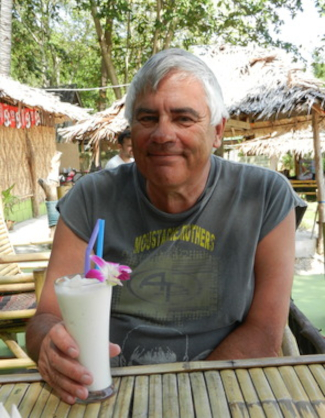Three people have headed B.C.’s Office of the Police Complaint Commissioner since the agency was established in 1998. All three — Don Morrison, Dirk Ryneveld and Stan Lowe — have been disreputable characters who breached the public trust. Here’s an account of B.C.’s first police complaint commissioner, Don Morrison.
The OPCC’s bias
goes all the way back
to Don Morrison
B.C.’s first police complaint commissioner
set an exceedingly poor example that others followed
Like his successors, Don Morrison
made big money covering up for cops.
Don Morrison is the only B.C. police complaint commissioner to come under scrutiny (apart from my own efforts to shine a light on these characters). He was appointed to the job in 1998 but by 2002 a legislative committee found it necessary to investigate an OPCC staff mutiny.
One former OPCC employee, Dana Urban (who’s a lawyer, not an ex-cop like almost all OPCC staff today), gave the committee examples of how Morrison covered up for police misconduct.
Six years later, while testifying at the inquiry into Frank Paul’s death, former deputy commissioner Matt Adie said Morrison would never order an investigation into any allegations against Vancouver cops unless the media forced him.
But media accounts from the 2002 inquiry show most witnesses and the committee focused on Morrison’s behaviour towards employees. [See update below.]
I think that was the real reason behind the staff rebellion. Several news stories reported employee complaints about Morrison’s “bullying, intimidation and manipulation of staff members,” and a “dysfunctional” and “poisonous work environment.” Adie reportedly chose to take early retirement in 2001 because Morrison “berated” and “humiliated” him.
Morrison responded that most of the criticism levelled against him was “personal” and involved “office politics.” I think his behaviour sparked the mutiny and disgruntled staff used Morrison’s unethical police bias only as extra ammunition.
Committee chairperson John Nuraney (who later helped appoint Stan Lowe police complaint commissioner) considered letting Morrison keep his job provided he take management training. That might have addressed Morrison’s bullying but not his lack of integrity, and shows what really concerned OPCC staff and the committee.
In the end Morrison was allowed to resign with a nearly $100,000 settlement, which indicates a lack of concern about his slimy ethics.
Morrison’s bullying, not his lack of integrity, caused the OPCC staff mutiny. There’s certainly no evidence that OPCC staff at any level worry about integrity — quite the contrary.
Update: While reading media reports to write the above piece, I missed this commentary from 2002. Les Leyne focused more on Don Morrison’s ethical conduct than behaviour to staff, and reported that at least four OPCC employees spoke up in that regard. Leyne’s column counters my suggestion that OPCC staff and the legislative inquiry were concerned more with the commissioner’s behaviour than ethics. (On the other hand, the committee chairperson did consider letting Morrison keep his job provided he take management training, which supports my earlier impression. Morrison’s hundred-grand settlement stinks too.)
Under Morrison’s successors the OPCC must have begun screening new employees to eliminate potential whistleblowers by selecting weak, under-qualified and compliant people, as well as the usual ex-cops. And again, this 2002 inquiry was the only time the OPCC has come under scrutiny, despite ongoing evidence of corruption. So in practice, this cop-friendly agency answers to no one.
Read more about
B.C.’s Office of the Police Complaint Commissioner
Go to News and Comment page
